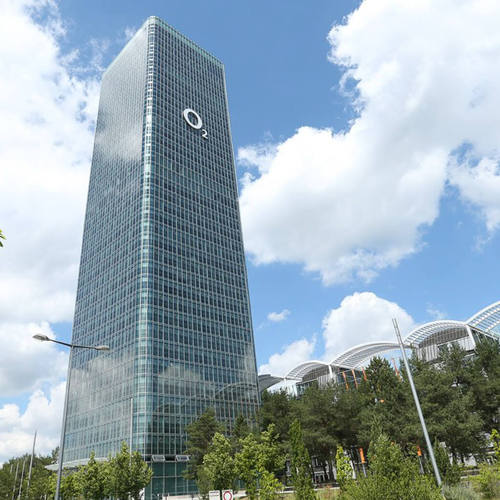
Taking a leaf out of the COVID-19 playbook of Telefónica CEO José María Álvarez-Pallete, the Spanish giant's German operation said it was "not immune" to the pandemic.
And just like Álvarez-Pallete, Telefónica Deutschland – on presenting its Q2 results – very much wanted to give the impression it was "resilient" in the face of what is an unprecedented crisis.
The operator wheeled out familiar COVID-19 "headwinds" to explain flat-lining growth.
Year-on-year turnover was up a microscopic 0.3%, to €1.79 billion (US$2.1 billion), largely because of a decline in mobile services revenue.
Helping handsets
"Growth" would have gone into negative territory were it not for "sustained handset and fixed revenue growth."
It said government-imposed restrictions, particularly mandatory closure of O2 shops between mid-March and the end of April – Telefónica Deutschland operates under the O2 brand – resulted in "weaker trading."
Figure 1:  Shop talk: The telecoms giant's O2 retail stores where closed by coronavirus.
Shop talk: The telecoms giant's O2 retail stores where closed by coronavirus.
(Source: Telefónica Deutschland)
Lockdown measures, added the operator, "muted prepaid dynamics."
If that wasn't enough to be getting on with, "worldwide travel restrictions compromised roaming patterns."
The Q2 upshot was that Telefónica Deutschland posted a 5.1% year-on-year fall in OIBDA, to €552 million ($646 million).
But it's not all doom and gloom. Because of a pickup in trading conditions towards the end of the quarter, Telefónica Deutschland stuck with its full-year guidance of flat-to-slightly positive revenue growth and profits.
Wait-and-see on 5G
Telefónica Deutschland claimed it was preparing 5G network rollout in Germany's "top five" cities but appears in no rush.
Huawei's uncertain RAN fate in Germany might be a reason for caution. Bonn is not expected to make up its mind about the Chinese supplier until September.
Although Telefónica Deutschland has signed preliminary contracts with Nokia and Huawei for 5G RAN kit, CEO Markus Haas claimed supplier contingency plans were in place in the event that Germany gives Huawei the elbow.
Want to know more about 5G? Check out our dedicated 5G content channel here on Light Reading.
"We have contracts with all the main vendors and would be in a position to make a switch within a few weeks," Haas told reporters on a Q2 conference call.
Rivals Telekom Deutschland and Vodafone are already well out of the 5G starting blocks, helped by dynamic spectrum sharing (DSS) technology.
Telekom Deutschland, which seems committed to Huawei until the coalition government says otherwise, claims to cover some 40 million people (half of Germany's population) with 5G.
Vodafone, also on the back of DSS, aims to cover 10 million people with 5G by the end of this year, rising to 20 million by the end of 2021.
4G coverage on track
Telekom Deutschland claimed it was making steady progress with 4G rollout and met its coverage obligations within a "grace period" set by Bundesnetzagentur (BNetzA), Germany's telecoms regulator.
There were some "temporary supply chain disruptions" for key LTE elements, but these have apparently been solved.
The country's mobile network operators have been getting it in the neck from BNetzA over missed coverage targets. The regulator, much to Telefónica Deutschland's irritation, has threatened to impose penalties if coverage targets aren't met by the end of this year.
Related posts:
— Ken Wieland, contributing editor, special to Light Reading
Read more about:
EuropeAbout the Author(s)
You May Also Like











